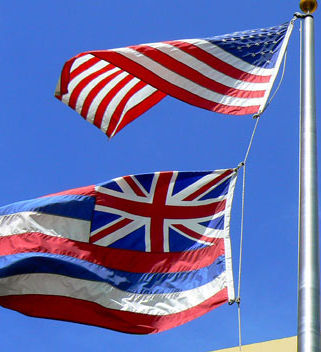HONOLULU — A federal judge ruled Friday that an election can go forward to choose delegates to draft a document allowing Native Hawaiians to govern themselves. U.S. District Court Judge J. Michael Seabright explained the election is a private poll
HONOLULU — A federal judge ruled Friday that an election can go forward to choose delegates to draft a document allowing Native Hawaiians to govern themselves.
U.S. District Court Judge J. Michael Seabright explained the election is a private poll — not one run by the state — as he denied a motion for a preliminary injunction to stop the vote set for next month.
Native Hawaiians are the last remaining indigenous group in the U.S. that hasn’t been allowed to establish its own government.
“It’s terrific news,” said Robin Danner, who represents Kauai on the Native Hawaiian Roll Commission, the group that is assembling and certifying a list of voters. “I hope all Native Hawaiians that want to participate will participate, and those that don’t, that’s OK, too.”
Danner said the ruling was not suprising given that Na’i Aupuni, the group leading the nation-building effort, is not a state agency.
In 2011, the state passed a law recognizing Hawaiians as the first people of Hawaii and laid the foundation for Native Hawaiians to establish their own government.
The election is intended to choose delegates to draft a self-governing document that would be submitted to Native Hawaiians for possible ratification.
Bill Meheula, an attorney for the organization Nai Aupuni which determined election criteria, hailed the ruling as “awesome.”
“We’ve been looking forward to this for decades, since the 1970s,” Meheula said.
Meheula said self-determination has been shown to help indigenous peoples such as Native Hawaiians struggling with low socio-economic status.
The election in Hawaii was challenged in a lawsuit filed in August that argued it was unconstitutional for the state to be involved in a race-based election.
The plaintiffs include two non-Hawaiians who aren’t eligible for the voter roll and two Native Hawaiians who say their names appear on the roll without their consent.
Kelii Akina, one of the plaintiffs, said he would appeal.
It’s “wrong for the state government to use public resources in order to promote a racially discriminatory process,” Akina said. “What’s really at stake here is not only the constitution of the United States but also the aloha spirit.”


